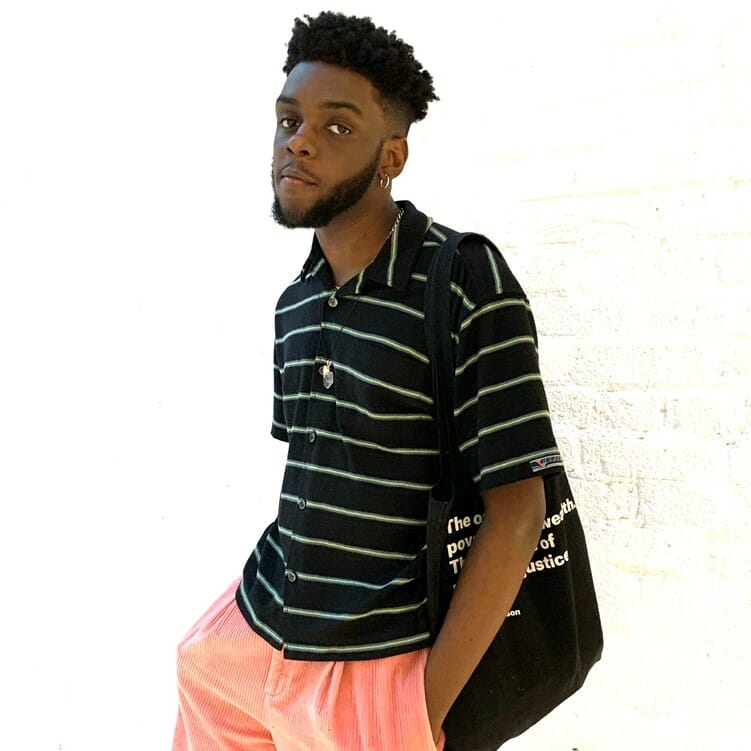LGBTQ youth disproportionately face bullying and harassment because of their identities. Every year, GLAAD Campus Ambassadors bring Spirit Day to their local campuses in order to raise awareness for anti-LGBTQ bullying and encourage their peers to take the pledge to go purple. GLAAD Campus Ambassadors are a volunteer network of LGBTQ and ally college and university students who work with GLAAD to build an LGBTQ movement that will accelerate acceptance and end hate within their local communities and beyond.
Check out their stories and advice for youth experiencing anti-LGBTQ bullying below.
Click here to take the pledge to stand against bullying
Amiri Nash, Brown University
When I was in middle school, I was made fun of at the intersection of my two identities: Black and Gay. On one hand, I experienced anti-Blackness, and insults about my skin color, such as “darkie,” yet on the other hand, I experienced homophobic ridiculing because of the fact that my personality did not live up to the social norms of masculinity. Fitting in began a battle between my two identities: about which one I would suppress to avoid conflict and being tyrannized by my peers. I dealt with this with help. I turned to YouTube to watch people’s ‘coming out’ stories and videos. I admired gay people who were out of the closet to their families. I started talking to friends who I knew supported LGBTQ people – they motivated me and gave me the courage to be myself. They never rushed me out of the closet. Connecting with other queer people, even if virtually, reassured me. Knowing that there were other people out there experiencing the same things that I was experiencing gave me hope. Eventually, I came out to my family, and they were beyond supportive. They vowed to always try and protect me from any homophobia, and have always been a resource to me from that day forward. Additionally, art, writing, and music helped me immeasurably. These things made me who I am.
Arlene Reynolds, UCLA
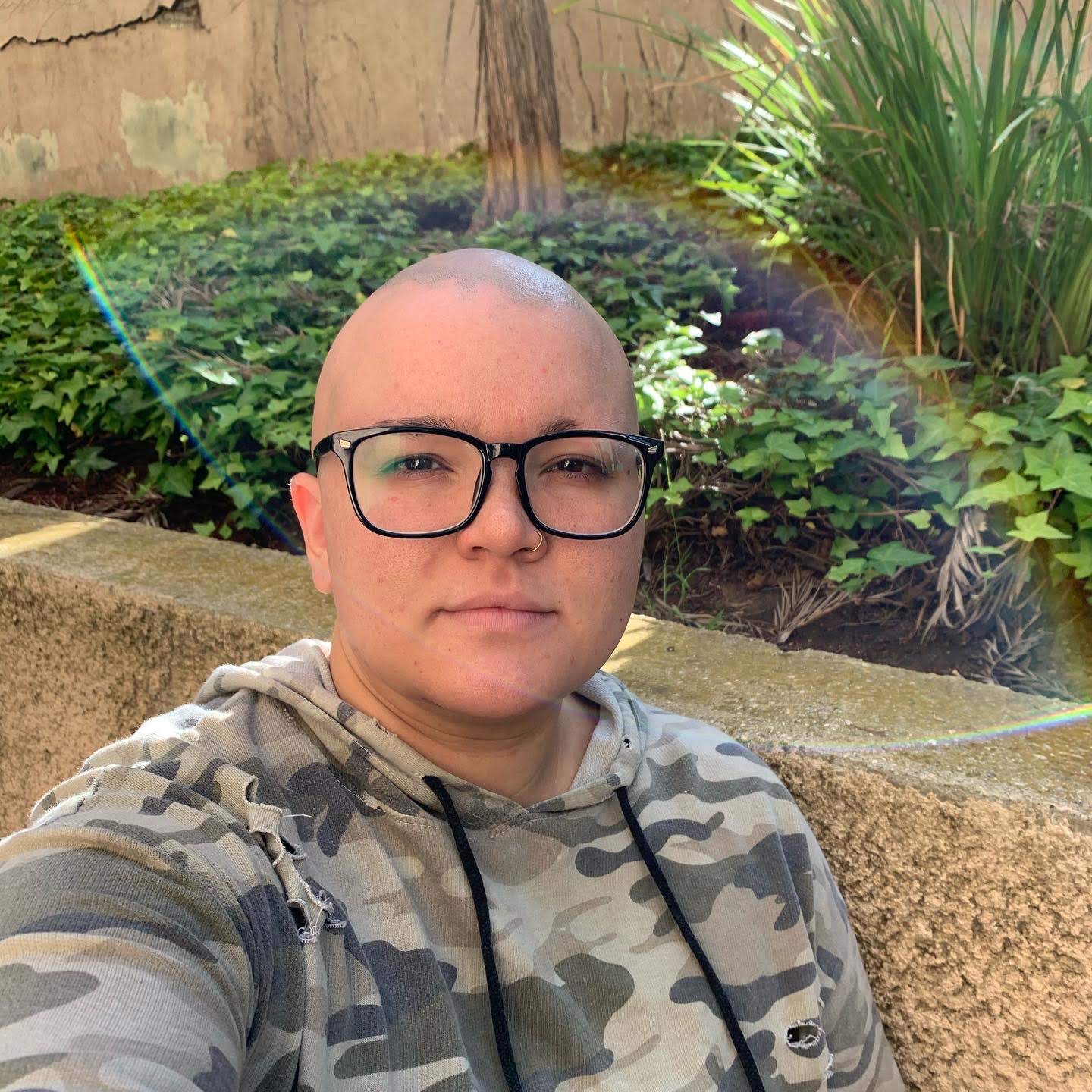
A lot of the hateful experiences at school came from my own softball team. I wasn’t prepared for that. These were supposed to be the people who I could rely on, above all. I started modifying myself to fit what it seemed they wanted from me. Sometimes it worked, but it was those moments that I felt the most bound up within myself. I started to hate the sport that had brought me so much peace and calm up to that point. I’d see other queer friends at tournaments and hang out with them, but suddenly feel conscious or awkward if my team was there. It was always subtle too, a glance or a micro-aggressive comment. I just didn’t feel like I had anyone I could possibly reach out to, someone who would understand. At some point – I can’t even pinpoint the exact time – I just stopped. I stopped trying to be friends with these people who obviously didn’t care about me. It just wasn’t worth it, even if it meant that our team would probably lose every game because we never trusted each other (which did happen). I relied on my GSA, where I became president. I was also lucky enough to have access to therapy. I started getting involved in online fandom, too. I could find my people, because there are so many people out there that I never previously had access to. I was given space and encouragement to grow, which was truly invaluable.
Darid Prom, Swarthmore College

Growing up in a categorical society, I found myself unable to fit neatly into one category. Being an immigrant, Asian, and queer often caused me to stand out among my peers. Living authentically, unfortunately, meant that I would be the target of bullying. Upon arriving in America in 2010, I didn’t entirely know what it meant to be “gay,” yet I was consistently harassed for being it. In Cambodia, there isn’t a word that accurately describes a person who likes someone of the same sex. “Gay” or “khtaey” in the Khmer language is often associated with drag queens, so I never fully understood what it meant to be gay in America. How did someone know something about me that I didn’t? I always knew I was different but was being myself the same as being gay? I began to equate the word “gay” with fear and inferiority as classmates used it as a weapon to wound me. So I conformed. After years of being caged in a box, I built up the courage to attend support groups as I educated myself more about the LGBTQ community. Learning about LGBTQ identities led me to better understand and develop my own identity. It helped me to finally accept my intersectional identity as a low-income gay Cambodian immigrant of color.
Kaylie Duffy, University of Central Missouri
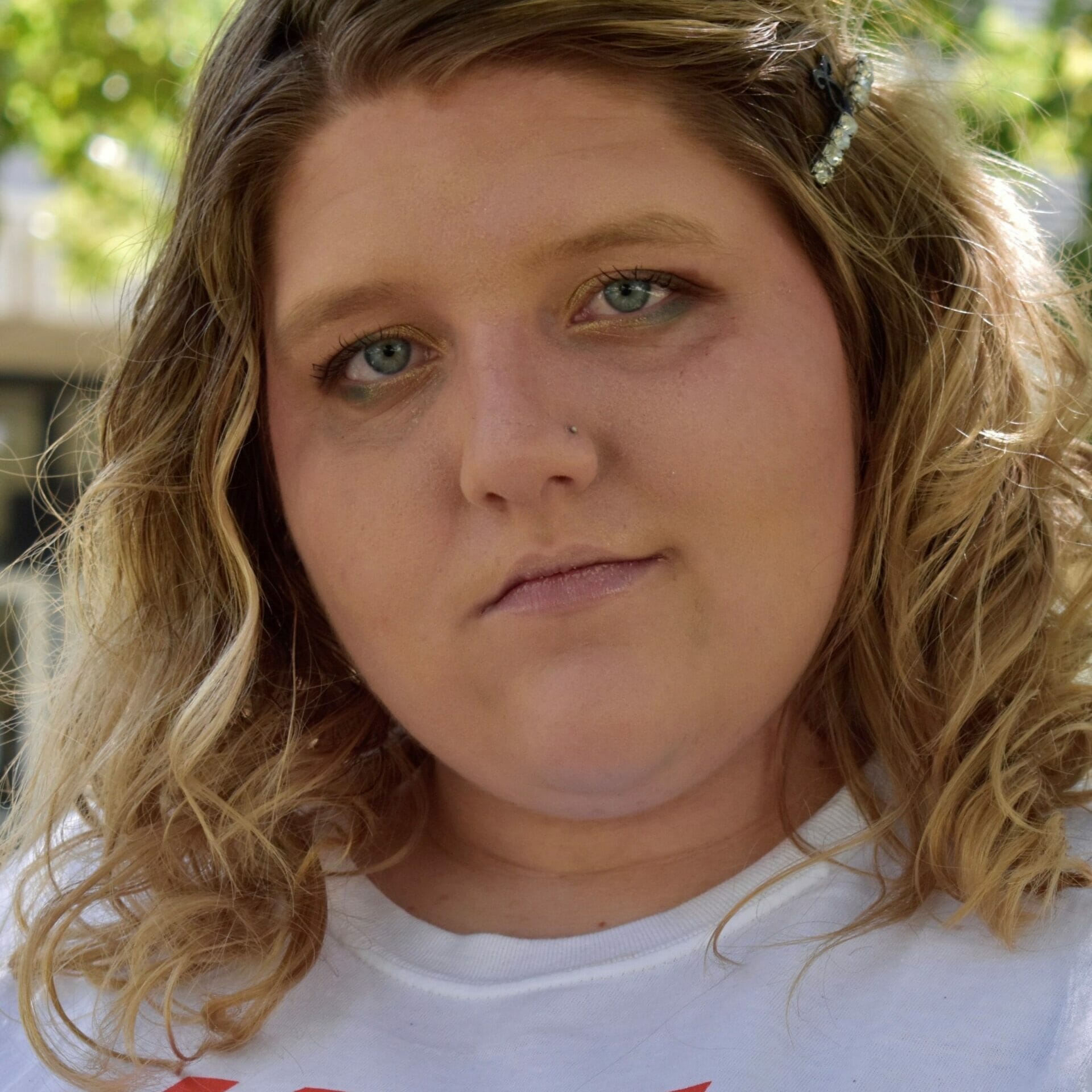
When I have been singled out based on my identity I try to take a step back, breathe, and remember that the words being thrown my way do not define me as a person. There have been multiple instances where I am in town and a slur is thrown my way or I am yelled at because I am “disgusting.” While these moments sting I don’t let it stop me. In the past I have let those words bounce right off me and I hold my head high because at the end of the day I am perfect the way I am. If I found myself getting upset or frustrated over the situation I would listen to my favorite music or call my friends because they are the hands I reach out to when things become overwhelming.
Matt Jacquez, Stanford University
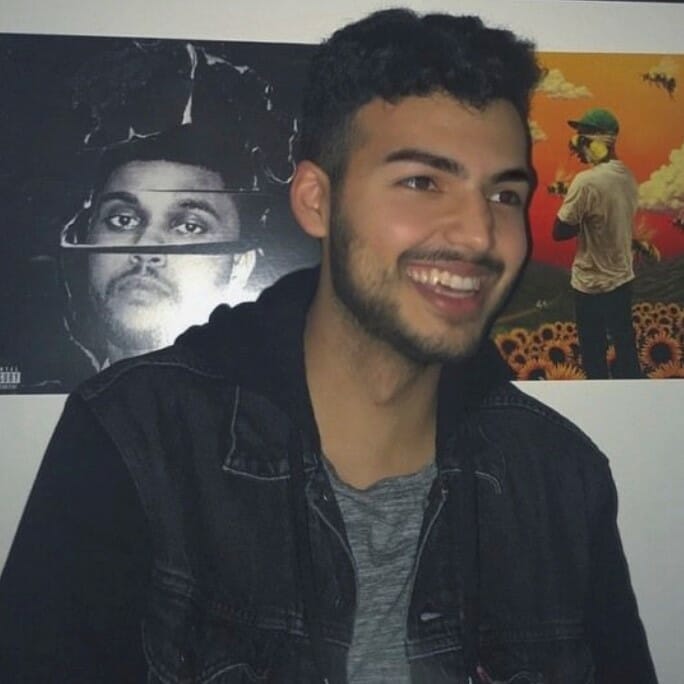
I’ve been bullied for both my racial identity and my sexual orientation. Growing up in a Mexican neighborhood, there were strict expectations for men and women, none of which I ever met. During this time, marriage equality was still illegal, and gay bashing was even more common than it is now. I was afraid of anything happening to me, so I never said anything to anyone.
Years past, and I still deal with the trauma I tried to erase back then. Hiding pain doesn’t work because it never goes away. More recently, I’ve started opening up to my friends and family about my experiences, but the healing process is still an ongoing process. I am now at Stanford University and outly proud of all my identities. This Spirit Day, I hope my story resonates with young people and inspires them to share their stories with those they love because it does get better.
Mikayla Galaviz, California Lutheran University
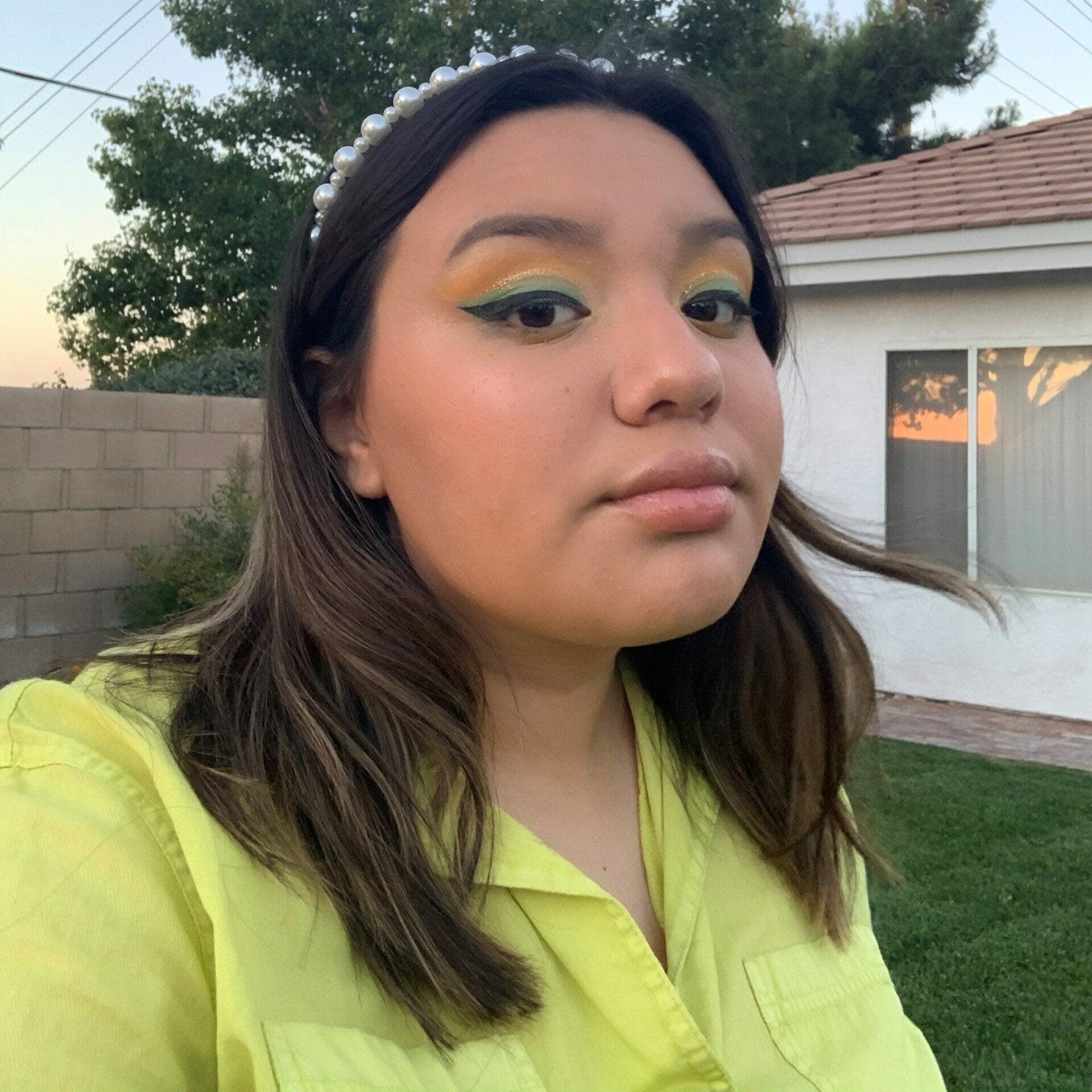
When I came out as bisexual, I was expecting invalidation. I’ve dealt with “it’s just a phase” and “pick a side” comments multiple times. I’ve dealt with people saying I’m not really apart of the LGBTQ+ community because I am attracted to men. Because of this I deal with a lot of internalized homophobia, and the bullying I am experiencing is mainly from myself. However, I have to remind myself everyday that my identity is valid, and that sexuality is fluid. It’s okay for me to still be figuring things out no matter what part of my life I am in and if no one else understands that, then it is their problem and not mine. As long as I am comfortable with myself then that is all that matters.
Trey Shimizu, Stony Brook University
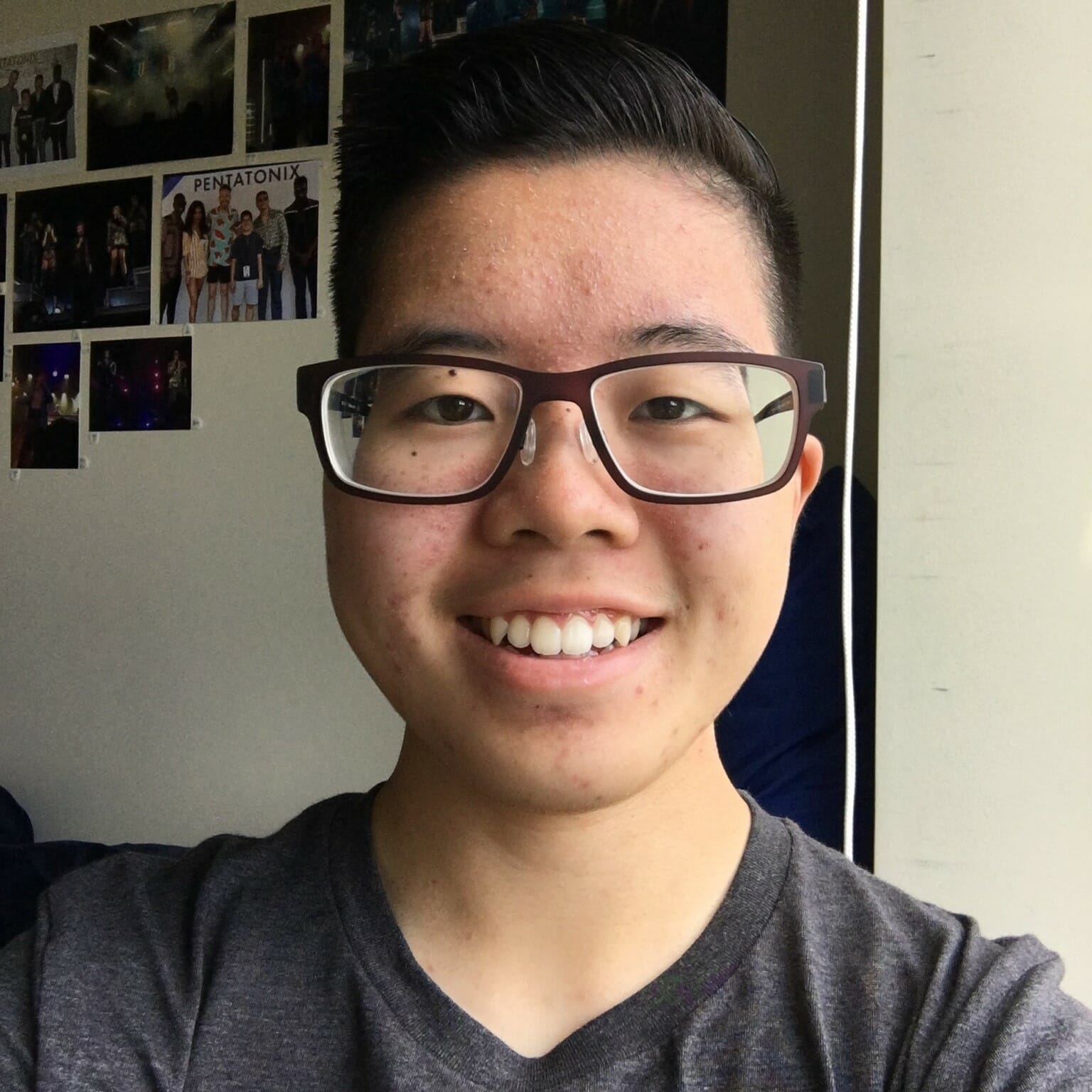
Before I even came out to myself or had the words to describe my queer identity, other kids picked on me for being different. In 5th grade, I remember a kid saying to me, “What are you, gay?” as if it was a bad thing. In middle school, we were told to give a report on people who were important to history and I chose a queer person. I remember hearing snide remarks from classmates for the rest of the week in an attempt to shame or embarrass me for something that they refused to understand. To some extent it worked, I avoided drawing attention to myself and I didn’t come out until after I graduated from high school. But in so many other ways, bullying didn’t stop me from being me or from finding my community. I surrounded myself with people who were supportive and found queer role models that I could identify with. Those experiences taught me a lot about resilience and helped to shape what would eventually become pride in my identities.
About Spirit Day
Each year, millions go purple for GLAAD’s Spirit Day to support LGBTQ youth in a united stand against bullying. Started in 2010 by high school student Brittany McMillan in response to numerous young LGBTQ lives lost to suicide, Spirit Day now draws the participation of celebrities, schools, faith institutions, national landmarks, corporations, media outlets, sports leagues, and advocates around the world, all joining together to stand against bullying and support LGBTQ youth.
Presenting partners Delta Air Lines, Kellogg Company, and Target, official partners Amazon, NYC Department of Youth and Community Development and the New York City Council, and Skittles, as well as community partners Kirkland & Ellis, NBA & WNBA will all participate in 2020 Spirit Day.
In 2020, Spirit Day takes on a renewed importance due to the unprecedented challenges facing LGBTQ youth. This year, many LGBTQ youth are beginning the school year at home and are unable to attend in-person meetings of Gay-Straight Alliances, Gender-Sexuality Alliances or on-campus college LGBTQ organizations. Some LGBTQ youth may be confined to a home environment that may be unsupportive or abusive. Calls to The Trevor Project’s hotline for LGBTQ youth have at times more than doubled since the COVID-19 pandemic began.
This year, Spirit Day is on October 15, 2020. Take the Spirit Day pledge to show LGBTQ youth you’ve got their backs at glaad.org/spiritday. Follow @GLAAD on Twitter, Facebook, and Instagram to keep up to date with #SpiritDay news.

